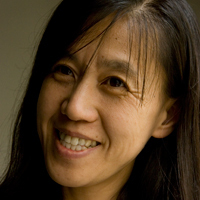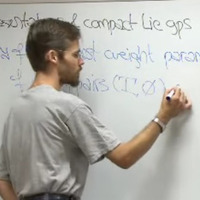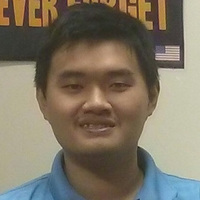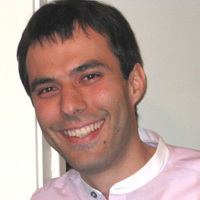 |
 |
 |
 |
 |
| Stephen DeBacker University of Michigan |
Ju-Lee Kim MIT |
Loren Spice Texas Christian University |
Cheng-Chiang Tsai MIT |
Tasho Kaletha Harvard |
| 8:30 | Coffee | |
| 9:00 | Stephen DeBacker | Characters of depth zero representations attached to Deligne-Lusztig representations |
| 10:00 | Coffee Break | |
| 10:30 | Loren Spice | Asymptotic expansions of characters |
| 11:30 | Lunch Break | |
| 1:30 | Tasho Kaletha | Regular supercuspidal representations |
| 2:30 | Coffee Break | |
| 3:00 | Cheng-Chiang Tsai | Some aspects of orbital integrals |
| 4:00 | Coffee Break | |
| 4:30 | Ju-Lee Kim | On the characters of unipotent representations of a semisimple p-adic groups |
| Talks start at regular time, not Harvard class time. |
 |
 |
 |
 |
 |
| Stephen DeBacker University of Michigan |
Ju-Lee Kim MIT |
Loren Spice Texas Christian University |
Cheng-Chiang Tsai MIT |
Tasho Kaletha Harvard |
Loren Spice: Asymptotic expansions of charactersHarish-Chandra made the analogy that characters (of irreducible representations) are to a reductive group as Fourier transforms of orbital integrals are to its Lie algebra. This was formalized by the Harish-Chandra--Howe local character expansion (about arbitrary semisimple elements) in terms of Fourier transforms of nilpotent orbital integrals, and later by the Kim--Murnaghan--Kirillov asymptotic expansion (about the identity) in terms of Fourier transforms of orbital integrals with a fixed semisimple part. In this talk, we discuss an analogue of the Kim--Murnaghan--Kirillov expansion (for characters and related distributions) about arbitrary points, and how to compute it effectively for supercuspidal characters. |
Cheng-Chiang Tsai: Some aspects of orbital integralsBeginning with a review of Springer theory applying to analogies of Fourier transforms of orbital integrals and Shalika germs over a finite field, we then proceed to show how an inductive algorithm can reduce orbital integral problems for reductive Lie algebras over a non-arch local field (with p>>0) to graded Lie algebras over the residue field, suggesting the need for a "graded Springer theory." If time permits, we shall discuss how unramified type A case is elementary and is (theoretically) computable by computers. |
Tasho Kaletha: Regular supercuspidal representationsJiu-Kang Yu has given a general construction of supercuspidal representations of tamely ramified reductive p-adic groups. We will show that most of these representations can be parameterized by conjugacy classes of pairs consisting of an elliptic maximal torus and a character of it, that can be described by a simple root-theoretic condition. We will then draw a remarkable parallel between the characters of these representations and the characters of real discrete series representations. Guided by this parallel we shall give an explicit construction of the local Langlands correspondence for these representations. |
Stephen DeBacker: Characters of depth zero representations attached to Deligne-Lusztig representationsWe will discuss an approach to computing the characters of those representations of a p-adic group that are attached to Deligne-Lusztig representations. Such things are usually best left undiscussed, but we shall try to give an understandable treatment. |
Ju-Lee Kim: On the characters of unipotent representations of a semisimple p-adic groupsAs a complement to other talks on supercuspidal characters in this workshop, we discuss characters of certain subquotient representations. More specifically, let G be a semisimple almost simple algebraic group defined and split over a nonarchimedean local field K and let V be a unipotent representation of G(K) (for example, an Iwahori-spherical representation). We calculate the character of V at compact very regular elements of G(K). This is a joint work with George Lusztig from 2012. |